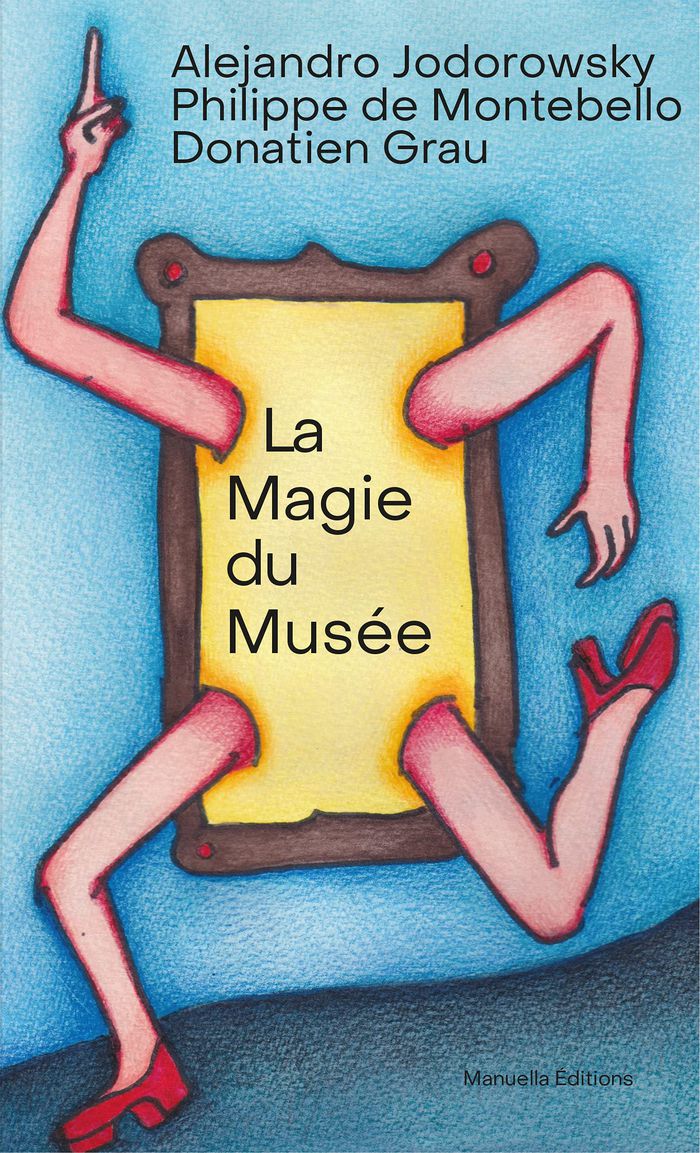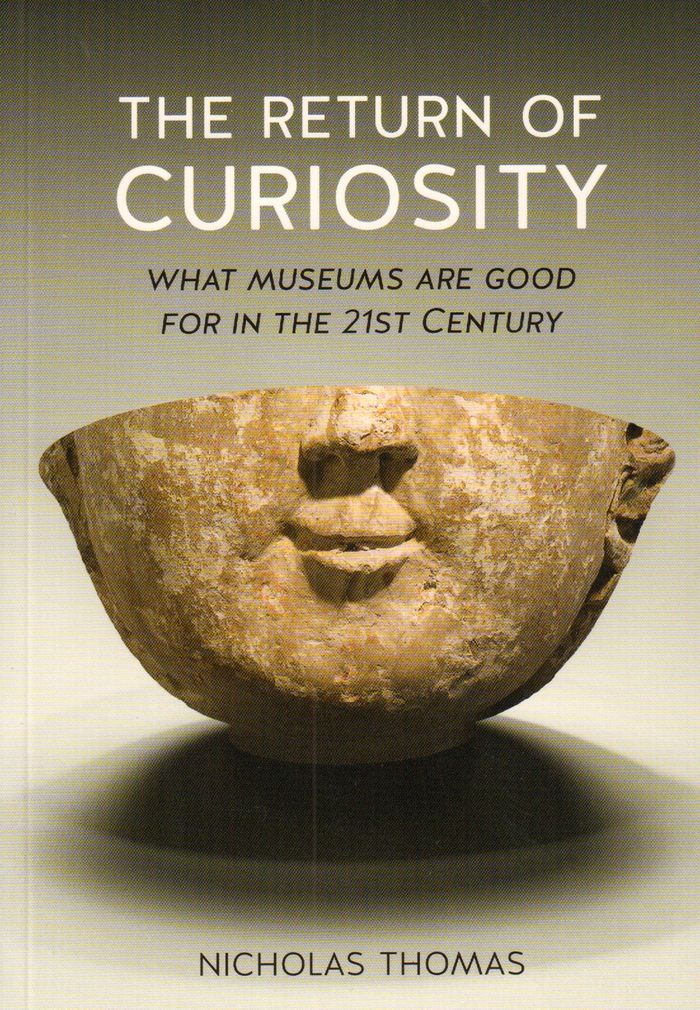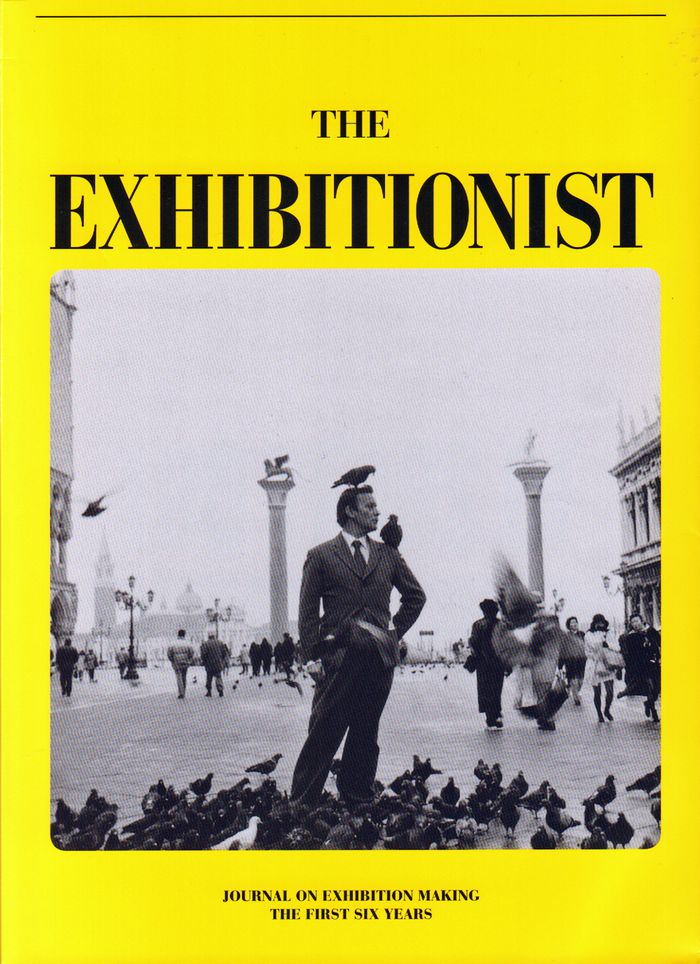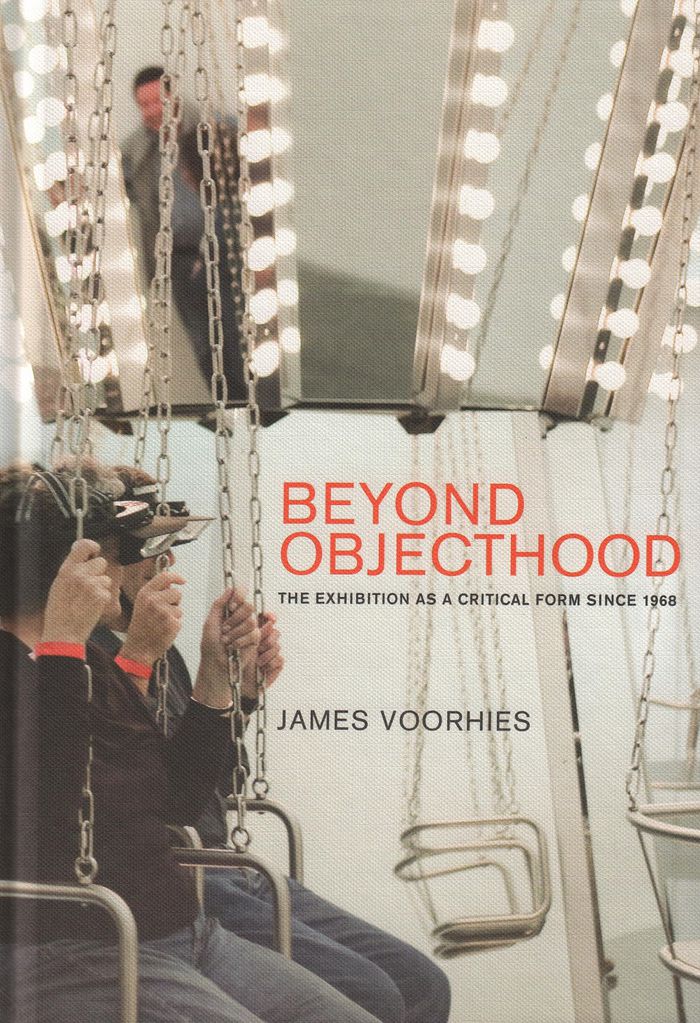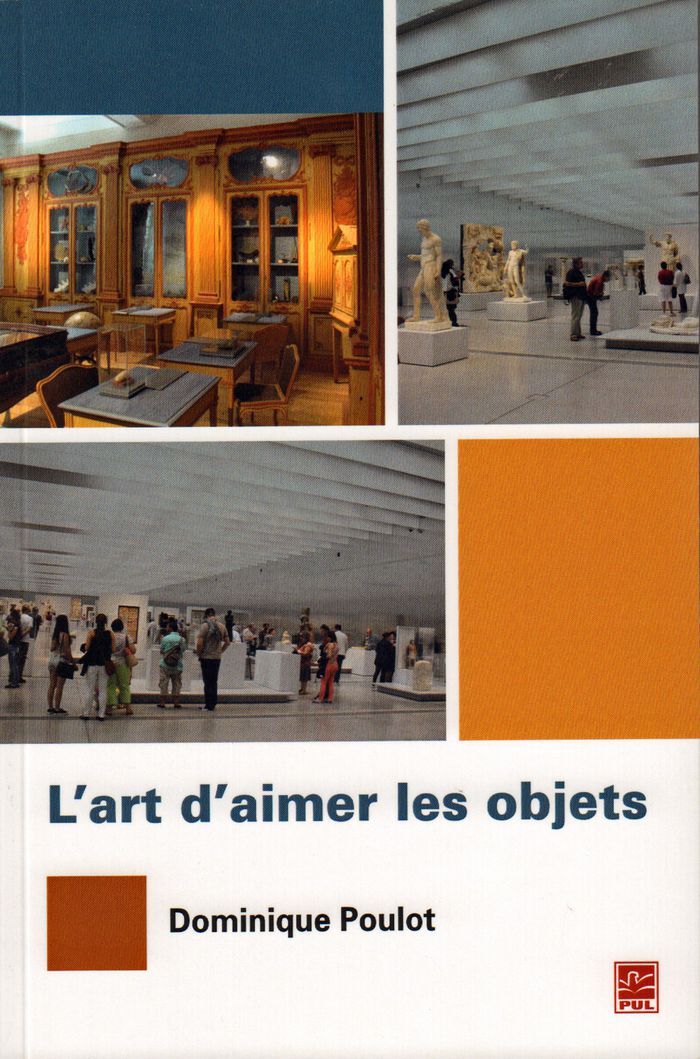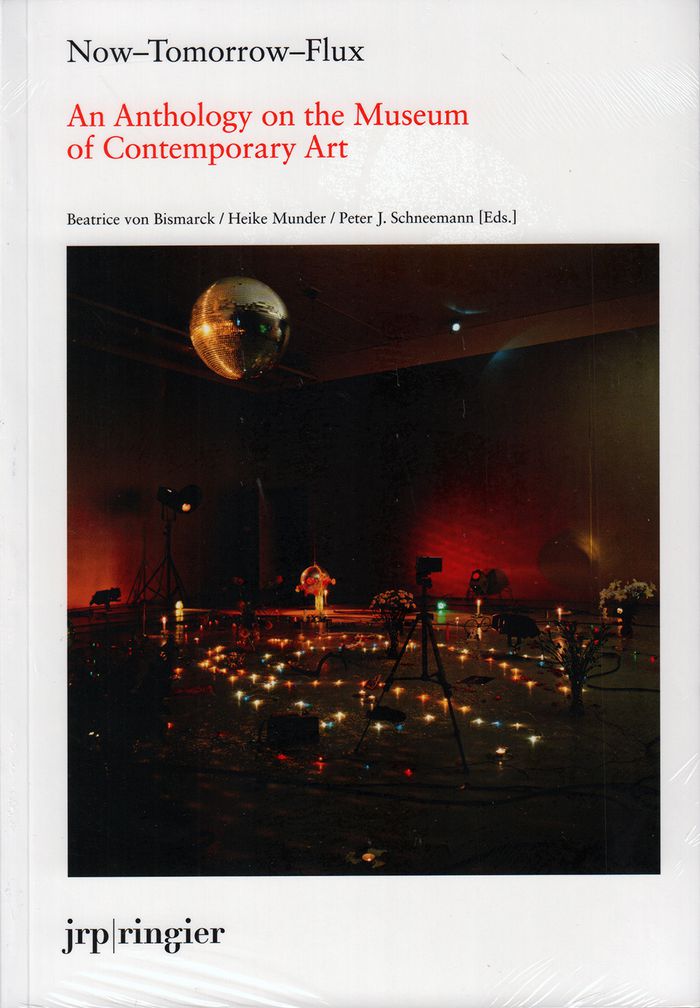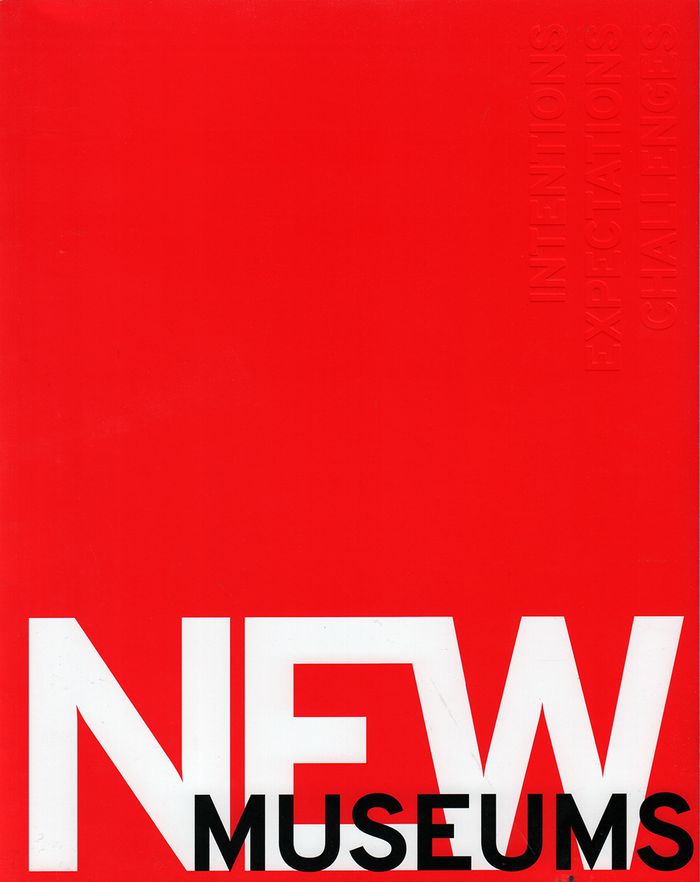La Magie du Musée
$22.95
(available to order)
Summary:
Ce livre est un entretien entre Alejandro Jodorowsky et Philippe de Montebello sur l’expérience vécue de l’art dans le musée.Dans cet échange instructif et passionné entre ces deux fi gures éminentes, l’entretien aborde tout d’abord le rôle du musée, de ses origines à aujourd’hui à travers son histoire, et évoque aussi les enjeux du marché de l’art, ainsi que la question(...)
La Magie du Musée
Actions:
Price:
$22.95
(available to order)
Summary:
Ce livre est un entretien entre Alejandro Jodorowsky et Philippe de Montebello sur l’expérience vécue de l’art dans le musée.Dans cet échange instructif et passionné entre ces deux fi gures éminentes, l’entretien aborde tout d’abord le rôle du musée, de ses origines à aujourd’hui à travers son histoire, et évoque aussi les enjeux du marché de l’art, ainsi que la question de la place de l’art contemporain dans le musée. Le débat central devient ensuite celui de la question de l’art dans le musée.En quoi consiste l’expérience de l’oeuvre? Et comment peut-on la rendre perceptible dans l’espace du musée? Si pour l’artiste qu’est Alejandro Jodorowsky l’art doit guérir l’humanité, Philippe de Montebello, dans son rôle de conservateur et d’amateur d’art, évoque l’expérience de l’oeuvre comme l’expérience du regard à travers le temps passé à la contempler. Et si la magie du musée consistait en cet optimisme qui y pénètre, et où l’on trouve le dépassement de soi?
Museology
$28.95
(available to order)
Summary:
The Spy Museum, the Vacuum Cleaner Museum, the National Mustard Museum—not to mention the Art Institute, the Museum of Modern Art, and the Getty Center: museums have never been more robust, curating just about everything there is and assuming a new prominence in public life. The Return of Curiosity explores museums in the modern age, offering a fresh perspective on some(...)
The return of curiosity: what museums are good for in the 21st century
Actions:
Price:
$28.95
(available to order)
Summary:
The Spy Museum, the Vacuum Cleaner Museum, the National Mustard Museum—not to mention the Art Institute, the Museum of Modern Art, and the Getty Center: museums have never been more robust, curating just about everything there is and assuming a new prominence in public life. The Return of Curiosity explores museums in the modern age, offering a fresh perspective on some of our most important cultural institutions and the vital function they serve as stewards of human and natural history. Reflecting on art galleries, science and history institutions, and collections all around the world, Nicholas Thomas argues that, in times marked by incredible insecurity and turbulence, museums help us sustain and enrich society. Moreover, they stimulate us to think in new ways about our world, compelling our curiosity and showing us the importance of understanding one another. Thomas looks at museums not simply as storehouses of old things but as the products of meaningful relationships between curators, the public, history, and culture. These relationships, he shows, don’t always go smoothly, but they do always offer new insights into the many ways we value—and try to preserve—the world we live in.
Museology
books
$105.00
(available to order)
Summary:
The experience of engaging with art and history has been utterly transformed by information and communications technology in recent decades. We now have virtual, mediated access to countless heritage collections and assemblages of artworks, which we intuitively browse and navigate in a way that wasn’t possible until very recently. This collection of essays takes(...)
Museums in a digital culture: how art and heritage became meaningful
Actions:
Price:
$105.00
(available to order)
Summary:
The experience of engaging with art and history has been utterly transformed by information and communications technology in recent decades. We now have virtual, mediated access to countless heritage collections and assemblages of artworks, which we intuitively browse and navigate in a way that wasn’t possible until very recently. This collection of essays takes up the question of the cultural meaning of the information and communications technology that makes these new engagements possible, asking questions like: How should we theorize the sensory experience of art and heritage? What does information technology mean for the authority and ownership of heritage?
books
October 2016
Museology
Architecture without walls
$23.00
(available to order)
Summary:
The texts included in this book present five architectural designs realized by Vera Buhß, Giacomo Gianetta, Konstantin Schimanowski, Katharina Schmidt, and Sum-Sum Shen. Instead of being generated and displayed in graphic media and approaching the object of design visually, these architectural environments have been conceived through auditory and literary practices. The(...)
Architecture without walls
Actions:
Price:
$23.00
(available to order)
Summary:
The texts included in this book present five architectural designs realized by Vera Buhß, Giacomo Gianetta, Konstantin Schimanowski, Katharina Schmidt, and Sum-Sum Shen. Instead of being generated and displayed in graphic media and approaching the object of design visually, these architectural environments have been conceived through auditory and literary practices. The designs presented in this book provide accessibility to new architectural entities not by showing their constructive conditions of emergence, but instead by describing the emergent qualities that configure them as environments. Alex Arteaga’s research integrates aesthetic and philosophical practices relating to the emergence of sense and knowledge, architectural and art practices through phenomenological and enactivist approaches. He studied piano, music theory, composition, electroacoustic music, and architecture in Berlin and Barcelona, and received a PhD in philosophy from the Humboldt University. He heads the Auditory Architecture Research at the Berlin University of the Arts. Boris Hassenstein runs his architectural studio based in Berlin. A strong focus of his work is set on the aspects of construction as a process and collaboration in the genesis of architecture. He studied architecture in Berlin. Currently he teaches at the MA Sound Studies and Sonic Arts at the Berlin University of the Arts and is a member of the Auditory Architecture Research Unit at the Berlin University of the Arts.
Museology
$53.95
(available to order)
Summary:
'The Exhibitionist: Journal on Exhibition Making' is an anthology of the first 12 issues of the journal about contemporary curating that bears the same name. Established in 2009 as a forum for critical reflection on exhibition-making and curatorial practice, The Exhibitionist has always defined itself as “by curators, for curators.” Modeled after the iconic French film(...)
The Exhibitionist: journal on exhibition making. The first six years
Actions:
Price:
$53.95
(available to order)
Summary:
'The Exhibitionist: Journal on Exhibition Making' is an anthology of the first 12 issues of the journal about contemporary curating that bears the same name. Established in 2009 as a forum for critical reflection on exhibition-making and curatorial practice, The Exhibitionist has always defined itself as “by curators, for curators.” Modeled after the iconic French film journal Cahiers du cinéma, The Exhibitionist has served a critical role in examining current curatorial practices by focusing specifically on the exhibition format as a site of experimentation and inquiry. The Exhibitionist has historicized, analyzed and critiqued a phenomenon it is itself symptomatic of—the rise of the curator since the 1960s, the ensuing explosion of curatorial creativity and the growing fascination with the discipline of curating.
Museology
$45.95
(available to order)
Summary:
In 1968, Robert Smithson reacted to Michael Fried’s influential essay “Art and Objecthood” with a series of works called non-sites. While Fried described the spectator’s connection with a work of art as a momentary visual engagement, Smithson’s non-sites asked spectators to do something more: to take time looking, walking, seeing, reading, and thinking about the(...)
Beyond objecthood: the exhibition as a critical form since 1968
Actions:
Price:
$45.95
(available to order)
Summary:
In 1968, Robert Smithson reacted to Michael Fried’s influential essay “Art and Objecthood” with a series of works called non-sites. While Fried described the spectator’s connection with a work of art as a momentary visual engagement, Smithson’s non-sites asked spectators to do something more: to take time looking, walking, seeing, reading, and thinking about the combination of objects, images, and texts installed in a gallery. In Beyond Objecthood, James Voorhies traces a genealogy of spectatorship through the rise of the exhibition as a critical form—and artistic medium. Artists like Smithson, Group Material, and Michael Asher sought to reconfigure and expand the exhibition and the museum into something more active, open, and democratic, by inviting spectators into new and unexpected encounters with works of art and institutions. This practice was sharply critical of the ingrained characteristics long associated with art institutions and conventional exhibition-making; and yet, Voorhies finds, over time the critique has been diluted by efforts of the very institutions that now gravitate to the “participatory.”
Museology
L'Art d'aimer les objets
$29.95
(available to order)
Summary:
L’écriture du patrimoine français a longtemps hésité entre la glorification des collections nationales et la critique de la perte du contexte des œuvres – aux dépens d’une approche du processus de patrimonialisation, de ses acteurs et de ses pratiques. On fait ici le pari d’une histoire de l’art d’aimer certains objets, en croisant les savoirs et les émotions, les(...)
L'Art d'aimer les objets
Actions:
Price:
$29.95
(available to order)
Summary:
L’écriture du patrimoine français a longtemps hésité entre la glorification des collections nationales et la critique de la perte du contexte des œuvres – aux dépens d’une approche du processus de patrimonialisation, de ses acteurs et de ses pratiques. On fait ici le pari d’une histoire de l’art d’aimer certains objets, en croisant les savoirs et les émotions, les investissements personnels et les disciplines institutionnelles, les projections et les appropriations. Les exemples choisis vont de la Révolution à nos jours et envisagent aussi bien les chefs-d’œuvre de l’art au musée que l’inscription de la société dans les dispositifs patrimoniaux contemporains. On constate chaque fois que l’attachement pour des choses jugées précieuses accroît leur profondeur et leur densité, engage des identifications de leurs " amis " et travaille enfin à différentes représentations collectives. La cristallisation patrimoniale autorise ainsi, sinon une unité imaginée des héritages, au moins l’ambition de leur construction commune.
Museology
The keeper
$64.95
(available to order)
Summary:
The Keeper accompanies an exhibition dedicated to the act of preserving objects, artworks and images. Through a variety of imaginary museums, personal collections and unusual assemblages, it offers a reflection on the impulse to save both the most precious and the apparently valueless, and reveals the devotion with which artists, collectors, scholars and hoarders have(...)
The keeper
Actions:
Price:
$64.95
(available to order)
Summary:
The Keeper accompanies an exhibition dedicated to the act of preserving objects, artworks and images. Through a variety of imaginary museums, personal collections and unusual assemblages, it offers a reflection on the impulse to save both the most precious and the apparently valueless, and reveals the devotion with which artists, collectors, scholars and hoarders have created sanctuaries for endangered images and artifacts. Through works spanning the 20th century, The Keeper tells the stories of various individuals through the objects they chose to safeguard.
Museology
$50.00
(available to order)
Summary:
The category of the museum, as it has been understood by museums of contemporary art over the last 30 years, is in need of a reassessment. This volume reflects on the museum of contemporary art in all its paradoxical characteristics. Over four chapters consisting of three theoretical essays and a section dedicated to discussion, questions regarding the roles and tasks of(...)
Now-Tomorrow-Flux: an anthrology on the Museum of Contemporary Art
Actions:
Price:
$50.00
(available to order)
Summary:
The category of the museum, as it has been understood by museums of contemporary art over the last 30 years, is in need of a reassessment. This volume reflects on the museum of contemporary art in all its paradoxical characteristics. Over four chapters consisting of three theoretical essays and a section dedicated to discussion, questions regarding the roles and tasks of the museum of contemporary art are addressed. The anthology discusses the museum of contemporary art’s double character as a site of production as well as conservation, and emphasizes its relation to different public spheres, also exploring ways of dealing with the standards that emerge from the practices of collecting, organizing and educating. Included are contributions from art historians and cultural experts Claire Bishop, Büro trafo.K, Martha Buskirk, Beatriz Colomina, Bettina Funcke, Adrian Heathfield, Christian Kravagna, Oliver Marchart, Donald Preziosi, Sophia Prinz, Beat Wyss and Artur Zmijewski.
Museology
$70.50
(available to order)
Summary:
What is the role of the museum in society today? In this time of fundamental economic and social change, should museums be safe civic spaces or open a floor for challenge and change? Can museums contribute to the economic development of communities? If so, how best to guard against the effects of gentrification so that they do not further limit opportunity for low-income(...)
New museums: intentions, expectations, challenges
Actions:
Price:
$70.50
(available to order)
Summary:
What is the role of the museum in society today? In this time of fundamental economic and social change, should museums be safe civic spaces or open a floor for challenge and change? Can museums contribute to the economic development of communities? If so, how best to guard against the effects of gentrification so that they do not further limit opportunity for low-income residents? How should museums respond to concerns about environmental sustainability? These are just a few of the questions museum professionals, planners, and architects must carefully consider when developing plans and choosing a location for a new museum. "New museums" explores these questions by talking to the people behind twenty different museums on six continents, both realized projects and speculative design proposals. Among the museums discussed in the book are the Smithsonian Institute’s National Museum of African American History and Culture in Washington, DC, by Adjaye Associates; the Guggenheim Helsinki by Moreau Kusunoki Architectes; the Comic and Animation Museum in Hangzhou by MVRDV; the Munch Museum in Oslo by Estudio Herreros, the Zeitz Museum of Contemporary Art Africa in Cape Town by Heatherwick Studio; the Long Museum West Bund in Shanghai by Atelier Deshaus; and the recent extension of the Art Gallery of New South Wales in Sydney by SANAA. With more than 250 color illustrations and contributions by leading museum and architecture experts, the book sheds light on current trends and the state-of-the-art technological advances in architecture, while also providing insight into the careful thought and decision processes that go into the development of new museums.
Museology
